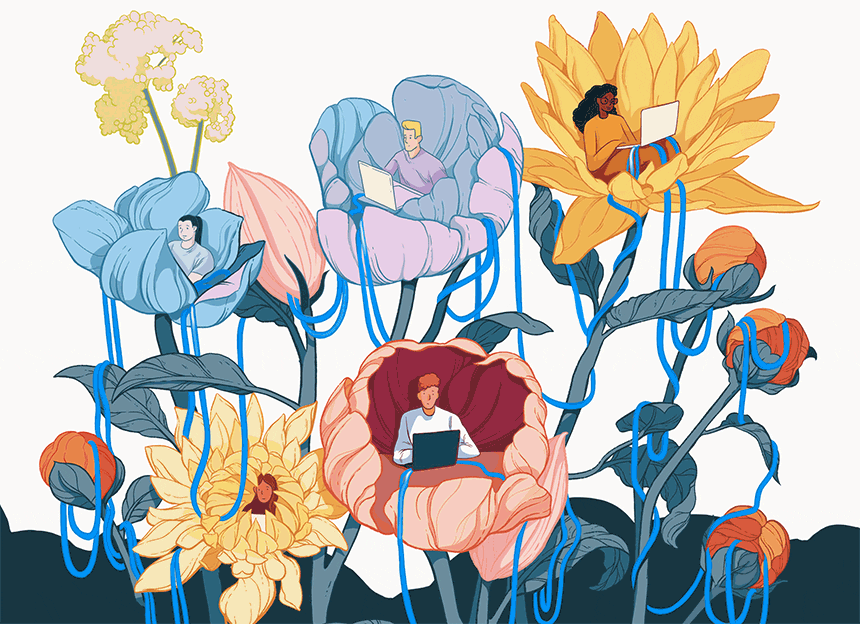
While COVID-19 brought in-person events to a screeching halt, Berkeley Law’s intellectual life has continued at full speed through a steady stream of timely online offerings.
Other than brief pauses for spring break and final exams, the event schedule bustled throughout the spring and summer. Many gatherings, including those open to the public, addressed the crises gripping American society: the ongoing pandemic and the reckoning over racial justice fueled by George Floyd’s killing and nationwide protests.
“From the moment we went to all online classes, I realized that we would need a concerted effort to find ways to create community,” Dean Erwin Chemerinsky says.
In June, Chemerinsky and Professors Khiara M. Bridges and Roxanna Altholz ’99 joined a panel on race and policing, and a new webinar series centered on civil legal issues and COVID-19 (hosted by the school’s Civil Justice Research Initiative) debuted with a discussion on remedies for police brutality.
Another new lecture series on how the pandemic affects different areas of law featured faculty members Robert Bartlett, William Kell, and Amelia Miazad ’02 on small businesses; Jennifer Urban ’00 on contact tracing and surveillance; Andrea Roth on the challenges posed to criminal cases; and Laurel E. Fletcher and Katerina Linos on international law, among others.
The Berkeley Judicial Institute offers events on how courts are coping with pandemic-related shutdowns. Federal and state judges, including Michigan Chief Justice Bridget Mary McCormack, describe the opportunities for change presented by virtual court proceedings.
A revamped Elizabeth J. Cabraser Summer Speaker Series, named for Lieff Cabraser founding partner Elizabeth Cabraser ’78, covered employment law amid COVID-19, racial justice in a crisis, voting rights, government lawyering, the criminalization of immigration, and a U.S. Supreme Court review from Chemerinsky.
“I worried that students would sit in front of their computers for eight hours a day without the space to step back, see the bigger picture, and hear from leaders in the public interest/public sector communities,” says Field Placement Program Director Sue Schechter, who helped launch the series.
The Berkeley Center for Law and Business quickly converted its monthly Berkeley Boosts program into daily short webinars that ran for two months. They featured Berkeley Law faculty, journalists, lawyers, and others covering topics such as coronavirus testing and the impact of the pandemic-fueled financial crisis on insurance, regulations, and mergers and acquisitions.
“The condensed, conversational nature of the new series really allowed us to connect with our audience,” says Adam Sterling ’13, the center’s executive director. “And the daily cadence created a sense of community.”
That spirit extended to more lighthearted events, including virtual craft circles, trivia nights, and even work-at-home companion pets taking the Zoom stage.
“Our faculty, staff, students, and centers have been really terrific in putting these together and participating,” Chemerinsky says.
—Gwyneth K. Shaw